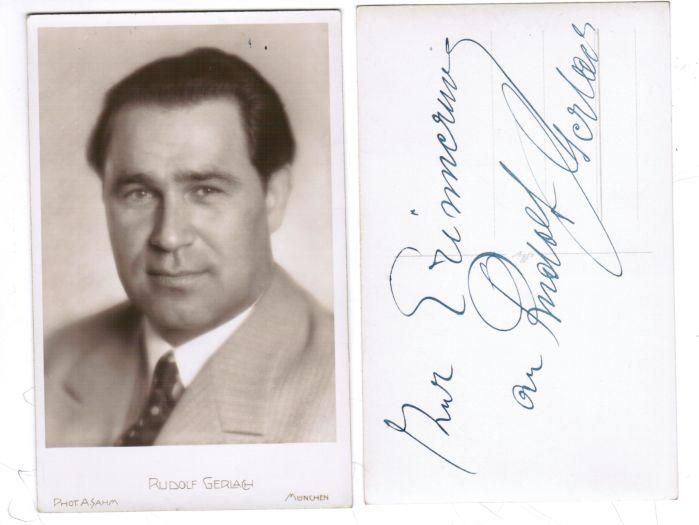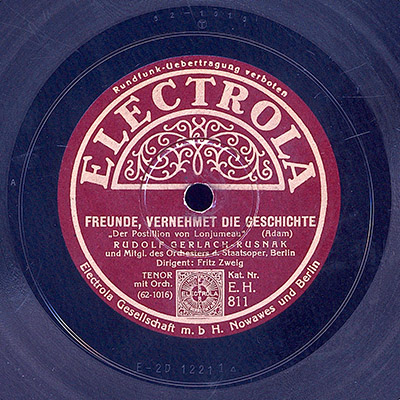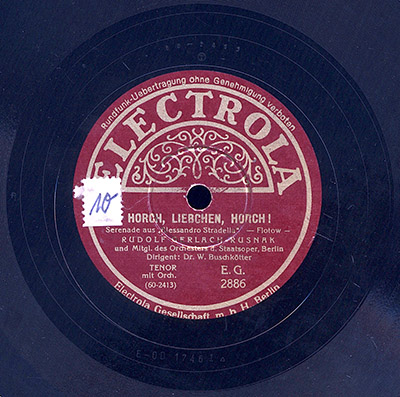Rudolf Gerlach-Rusnak was, the apparently German name notwithstanding, Ukrainian: born on July 24th, 1895
in Dubivtsi, a hamlet in the region around Chernivtsi/Czernowitz, which was Austrian at the time. His real name was Orest Rusnak, and when singing in
Ukraine or in Austria, he used it also on stage – Gerlach-Rusnak (Gerlach was his wife's maiden name) was for German purposes only.
An Austrian officer in World War I, he was taken prisoner of war by the Russian in 1917, and his voice was discovered in captivity.
He started studying voice in Prague (Austrian, as well, at that time) in 1918, and made his debut in 1923 in – then already Czechoslovakian
– Olomouc. His debut role was Rodolfo (hence "Rudolf" in his later stage name). After a few years in the German and Austrian province
(Chemnitz, Königsberg/Kaliningrad, Stettin, Graz), interrupted by further voice studies in Berlin (with Jacques Stückgold) and
Milan, he arrived at the Munich State Opera in 1931, where he finally became Rudolf Gerlach-Rusnak. He stayed until 1937. Already from
Munich, he made a lot of guest appearances elsewhere, and the next few years, he would exclusively sing as a guest, for instance in Vienna,
where he sang in the world premiere of Franz Schmidt's oratorio Das Buch mit sieben Siegeln in 1938. From 1941 on, he was back to
more provincial venues (Bremen, Innsbruck), but returned to Munich in 1945.
In 1946, he had a coronary during a concert, and never entirely
recovered. He ended his stage career in 1951 and later gave only occasional concerts, the last ones in 1957 in the USA and Canada, where he
also made – again as Orest Rusnak – his last recordings (of Ukrainian songs). He died in Munich on January 23rd, 1960.
Gerlach-Rusnak was quite a big name in Germany; he sang very frequently on the radio, and he drove audiences crazy with his high notes,
particularly in Trovatore, and with Chapelou's aria from Le postillon de Lonjumeau (which was, with the German text "Freunde, vernehmet die
Geschichte", immensely popular in Germany at the time). Gerlach-Rusnak was famous for repeating readily; once in Munich, the audience got
five repetitions of "Di quella pira", and a sixth at the end of the performance.
References: Preiser LP liner notes, Kutsch & Riemens, Wikipedia
Picture source: ZVAB
Many thanks to Anton Bieber for the Postillon and Alessandro Stradella recordings and label scans.


